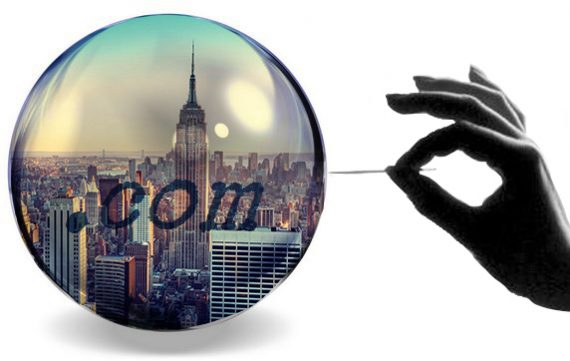Observers have been predicting a tech crash for years now, but you won’t hear many in New York’s real estate industry openly fret about it. Most see it as something that matters to other people: real estate investors in San Francisco or Seattle and maybe WeWork’s landlords. New York’s real estate market, the argument goes, is far too large and diverse to depend on tech firms for its well-being. “If tech were to slow down, some other industry will take that slot,” SL Green Realty’s Steven Durels said when worries over the industry’s health began to mount in 2015.
But is this nonchalance justified?
Clear data on the size of New York’s tech sector is hard to come by, in part because it’s tricky to define what exactly constitutes “tech” in an age where every business depends on technology. But the studies that attempted to do so suggest that the tech sector has become an integral part of the city’s economy – and, by extension, the real estate market.
In August 2015, Center for an Urban Future, a think tank, analyzed Department of Labor data and found that 117,147 New Yorkers worked in seven industries “in which firms use technology as their core business strategy” (Computer Manufacturing, Electronic Shopping, Software Publishing, Data Processing & Hosting, Internet Publishing & Broadcasting & Web Search Portals, Computer Systems Design and Scientific R&D Services). That’s a 71-percent increase over the 68,571 people the sector employed in 2005.
But CUF’s study only counts those directly employed by tech firms. What about all those whose fortunes indirectly depend on the spending power of the tech sector? A 2014 report by consulting firm HR&A Advisors offers an estimate. Using a broader definition of tech, it found that in New York City, 291,000 people (or 7 percent of the city’s employed population) work in jobs “that are enabled by, produce, or facilitate technology.” Another 250,000 jobs depended on the tech sector’s economic multiplier. Add it all together, and the city’s tech sector accounted for $50.6 billion in annual wages and $124.7 billion in output. It’s safe to assume that the tech industry’s importance to New York’s economy hasn’t diminished since the report was published.
“It’s just night and day how much more important the tech sector is to the city’s economy today compared to 10 or 15 years ago. Tech is one of the key drivers of economic growth today,” said CUF’s executive director Jonathan Bowles, adding that “the tech sector has seen meteoric growth while finance has been treading water.”
Using CUF’s estimate of tech employment, the 117,147 total isn’t too far off the 165,300 that were employed in finance as of 2014. It’s universally acknowledged that the health of the financial sector is a big factor in the health of the New York real estate market as a whole (and not just to Midtown and FiDi office landlords) and that, for example, Wall Street bonuses impact apartment prices. But what about tech? Sure, brokerages publish reports on office leasing to so-called TAMI tenants, but those only scratch the surface of the tech industry’s importance to the real estate market. There is, to this reporter’s knowledge, no comprehensive study of the tech industry’s importance to the retail, residential and investment sales markets.
So while there is a widespread belief that a bursting tech bubble could depress San Francisco’s real estate market, few extend that to the very real possibility that it could also become a serious problem for New York City. There seems to be little concern that tech firms going out of business left and right will make it harder to sell $4 coffees and $15 vegan lunch bowls in the Flatiron District, which could shutter stores and send retail rents down. And even less concern that apartment landlords in Dumbo, Williamsburg or the East Village may no longer be able to charge the same rents absent armies of well-paid tech employees.
Using the New York City Comptroller’s rule-of-thumb ratio between economic output and taxation, the HR&A study estimated that the NYC tech industry directly and indirectly generated around $2.5 billion in commercial and residential property taxes in 2013 – or 12 percent of all property taxes collected that year. Even if you consider that number inflated, it’s clear that the tech industry’s importance to New York’s real estate market goes far beyond office leasing in Midtown South.
There is certainly a legitimate debate to be had over whether there even is a tech bubble. Plenty of large tech firms are profitable and financially independent. But wherever you stand on the subject, you can’t have it both ways: either there is no tech bubble and the real estate market is fine, or there is one and the New York real estate market as a whole is in trouble.
Historically, big crises happen not when we fail to spot a problem in the market, but when we fail to spot the problem’s potential ripple effects. In 2007, most people knew that U.S. home prices were overvalued, but few saw through the web of securities and insurance products that would end up bringing down banks around the globe. In 2017, are we again suffering from tunnel vision?
